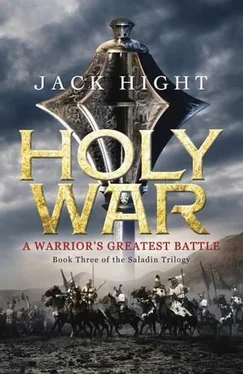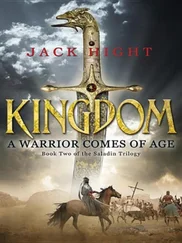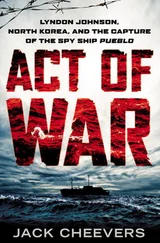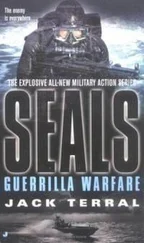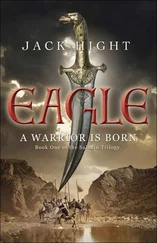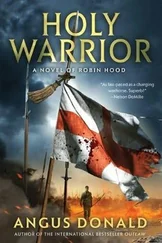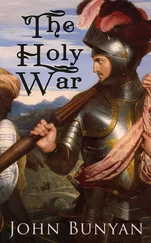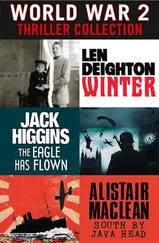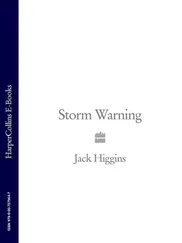Jack Hight - Holy War
Здесь есть возможность читать онлайн «Jack Hight - Holy War» весь текст электронной книги совершенно бесплатно (целиком полную версию без сокращений). В некоторых случаях можно слушать аудио, скачать через торрент в формате fb2 и присутствует краткое содержание. Год выпуска: 2013, ISBN: 2013, Издательство: John Murray, Жанр: Исторические приключения, на английском языке. Описание произведения, (предисловие) а так же отзывы посетителей доступны на портале библиотеки ЛибКат.
- Название:Holy War
- Автор:
- Издательство:John Murray
- Жанр:
- Год:2013
- ISBN:9781848545342
- Рейтинг книги:4 / 5. Голосов: 1
-
Избранное:Добавить в избранное
- Отзывы:
-
Ваша оценка:
- 80
- 1
- 2
- 3
- 4
- 5
Holy War: краткое содержание, описание и аннотация
Предлагаем к чтению аннотацию, описание, краткое содержание или предисловие (зависит от того, что написал сам автор книги «Holy War»). Если вы не нашли необходимую информацию о книге — напишите в комментариях, мы постараемся отыскать её.
Holy War — читать онлайн бесплатно полную книгу (весь текст) целиком
Ниже представлен текст книги, разбитый по страницам. Система сохранения места последней прочитанной страницы, позволяет с удобством читать онлайн бесплатно книгу «Holy War», без необходимости каждый раз заново искать на чём Вы остановились. Поставьте закладку, и сможете в любой момент перейти на страницу, на которой закончили чтение.
Интервал:
Закладка:
Asimat hardly spared a glance for her new home. ‘It will do.’ She met his eyes. ‘You do not seem happy to see me, Husband.’
‘Why have you come? You could have stayed in Aleppo.’
‘With the men who murdered my son? He did not die a natural death. He was poisoned.’
‘I know.’
Her eyes widened. ‘You know?’ She seized his arm. ‘Who did it? Tell me.’
‘Izz ad-Din.’
‘But he is Al-Salih’s cousin.’
‘He is an ambitious man. Now he rules from Mosul and his brother sits on the throne of Aleppo. With Al-Salih dead, they are the heirs to Nur ad-Din’s kingdom. They will look to Damascus next.’
‘Izz ad-Din,’ Asimat murmured. ‘I should have known.’ All strength seemed to suddenly go from her, and she sank into a pile of cushions on the floor. She sat with her head cradled in her hands for a moment; then she met Yusuf’s eyes. ‘I am the one who found him. He was alone in his chamber when he died. His cup of wine had fallen from his hand. His face was blue as if he had been strangled, but there was no sign of a struggle. I should have been there. I should have protected him.’
Yusuf knelt beside her and took her hands in his. ‘You did all you could.’
‘No. There is one last thing I must do for my son. I must give him vengeance.’ She clutched his hands. ‘If you ever loved me, Yusuf, then avenge me. Avenge our son. March on Mosul. Kill those who took my child from me. Kill that bastard Izz ad-Din.’
Yusuf looked away, unable to bear the sight of her grief. His stomach was burning and he tasted bile in the back of his throat. ‘Those who killed Al-Salih will suffer,’ he told her. ‘You have my word.’
November 1182: Mosul
A long stretch of the imposing sandstone wall of Mosul was sheathed in flames that licked up from the battlements towards a sky that threatened rain. The fires were the last trace of the burning naphtha that the defenders had poured down on Yusuf’s men, leading him to call off the attack. The breeze had brought Yusuf the stench of burning flesh. Now, it carried him the catcalls of the city’s defenders, who mocked his men as they limped back to camp, carrying their dead and wounded. Stones and other objects hurled from catapults soon joined the insults. Yusuf’s fists clenched so tightly that his nails dug into the palms of his hands.
His army had arrived a week ago. Yusuf had deployed his troops around the city and begun a bombardment, but with winter coming, he did not have time for a long siege. He had hoped that a show of force would hurry the decision of the caliph in Baghdad. Yusuf had written to him to request that he be given rule of Mosul. After today, he feared the reply he would receive. Yusuf was still watching his army limp back into camp when Qaraqush galloped up and dismounted. His face was spattered with blood, and part of his caftan had been burned away. He gingerly held a boot in his calloused hands.
‘Casualties?’ Yusuf asked him.
‘A hundred men, give or take. Ubadah’s men took the worst of it. They were the ones hit by the fire.’ Qaraqush shook his head. ‘It’s no use, Malik. Izz ad-Din has too many men for us to storm the city. They fight like devils. Look at this.’ He held out the boot.
Yusuf took it carefully. It was filled with nails, some of which protruded from the sides. They were wet with blood.
‘They are hurling buckets full of them with their cursed catapults,’ Qaraqush explained, shaking his head. ‘This one hit the man beside me in the face.’
Yusuf studied the boot for a moment before tossing it aside. ‘They will stop soon enough, else they will run out of shoes.’
‘It is no laughing matter. I shudder to think what they will send us next.’ Qaraqush scratched his beard. ‘Our catapults have hardly put a dent in their walls, Malik, and the wet weather makes mining impossible. Forgive my bluntness, but we are wasting our time here.’
Yusuf knew Qaraqush spoke for the rest of his men, and he was no doubt sparing him the worst. He forced himself to smile. ‘We will sit before the fires in the palace of Mosul soon enough, old friend. I expect the Caliph’s messenger any day. Once Al-Nasir grants me lordship over Mosul, Izz ad-Din will be forced to admit my lordship and welcome us into the city.’
‘And if the Caliph does not do as you hope?’
‘He will. I sent him gifts worth many thousands of dinars: a valuable Koran, musk, amber necklaces, aloe, balm of Judea, a hundred bows, seven hundred arrows of the best quality, and twenty horses with fine saddles.’
‘Izz ad-Din no doubt sent him gifts as well.’
Yusuf frowned. ‘I cannot take Jerusalem while the men of Mosul sit poised like a dagger at my back. Even the Caliph must see that.’
‘Inshallah.’
‘I must see to the wounded. Speak to the emirs, Qaraqush. Tell them what I have told you.’
A light rain began to fall as Yusuf made his way down the hill with Saqr at his heels. Yusuf had made the young man the head of his private guard years ago, after Saqr saved his life during the siege of Alexandria, and he had never had cause to regret the decision. The men called Saqr ‘Saladin’s Shadow’, because he was always at Yusuf’s side. They walked past the ordered tents of the mamluks to where a sprawling tent had been set up at the centre of the camp. Inside, shaded lanterns hung from the ceiling, casting a dim light on dozens of injured men. This was the dark side of glory, the side the poets never spoke of. The wounded sat close together, some moaning in pain, others staring forward in grim-faced silence. Most of these men would live. They had suffered minor cuts or small burns. Those who were worse off were kept at the centre of the tent, in a section screened off from the rest. Yusuf headed there first.
As he entered, he stepped past a man who clutched an arm that was missing a hand. Beside him a man lay on his side trying to hold in his guts, which protruded from a ragged gash in his stomach. His eyes were glazed and he was mumbling something under his breath.
‘You fought well,’ Yusuf told the men. ‘Allah will reward you.’
The man with the missing hand nodded. The other man showed no sign of having heard. Yusuf continued into the room, past dozens of men who had suffered terrible burns. Some clutched their bloody, blistered flesh and moaned in pain. Others had skin that was black and charred. They made no sound at all. Yusuf said what words of comfort he could. He paused when he came to a man whose face was one raw, bleeding wound. Ibn Jumay knelt beside him. The doctor noticed Yusuf’s pained expression.
‘His face is not the worst of it,’ Ibn Jumay said. ‘His lungs have been burned. There is no hope for him. I have given him extract of poppy for the pain.’
The man moved, and his eyes blinked open. The fire had blinded him, and he stared straight ahead without seeing. He whispered something in a rasping voice. Yusuf knelt beside him. He had to bring his ear close to the man’s mouth to hear. ‘Malik.’
‘Yes, soldier.’
‘Remember — when — ’ Each word was a gasp that caused the man’s face to contort in pain. ‘- we — fought.’ Yusuf frowned. He looked again at the man’s face, but his features had been burned away. ‘Tell Bashir.’
‘Nazam.’ The man nodded. Yusuf took his hand. ‘I remember, friend.’
‘Wife.’ Nazam took a long, shuddering breath. ‘My wife!’
‘She will be provided for.’
Nazam sank back, a smile on his ruined lips. Ibn Jumay gave him another spoonful of poppy extract, and Nazam’s eyes closed. After a moment, his rasping breathing stopped.
‘Malik!’
Yusuf turned to see Ubadah and Nasir ad-Din enter the screened-off portion of the tent. His nephew’s mail was red with blood and his hair was singed. At twenty-four, lean and strong, Ubadah looked more like his father, John, than ever. Nasir ad-Din’s tunic was also red, but it looked to be from spilled wine, not blood. Yusuf’s jaw set. He pointed to Nasir ad-Din’s tunic. ‘You dare come before me in this state? I had hoped you would learn discipline in Homs, but I can see my hopes were ill founded. Were it not for the love I bore for your uncle, Shirkuh, I would have your tongue cut out as an example. Instead, I shall have your lands. You are emir of Homs no longer.’
Читать дальшеИнтервал:
Закладка:
Похожие книги на «Holy War»
Представляем Вашему вниманию похожие книги на «Holy War» списком для выбора. Мы отобрали схожую по названию и смыслу литературу в надежде предоставить читателям больше вариантов отыскать новые, интересные, ещё непрочитанные произведения.
Обсуждение, отзывы о книге «Holy War» и просто собственные мнения читателей. Оставьте ваши комментарии, напишите, что Вы думаете о произведении, его смысле или главных героях. Укажите что конкретно понравилось, а что нет, и почему Вы так считаете.
